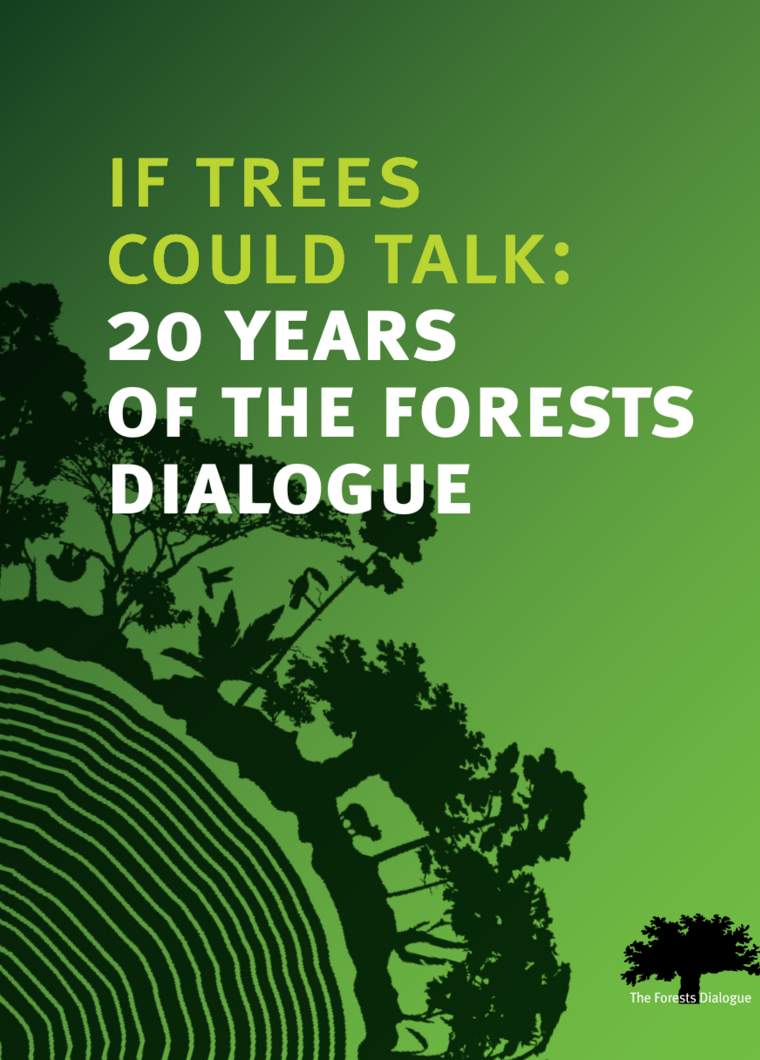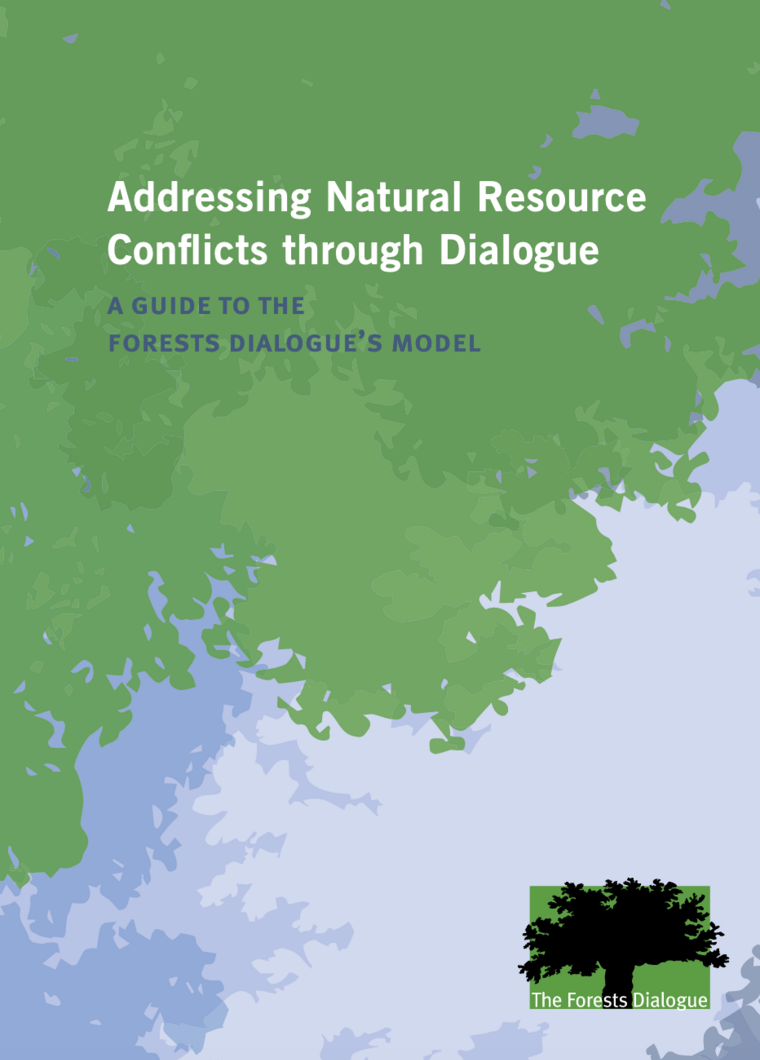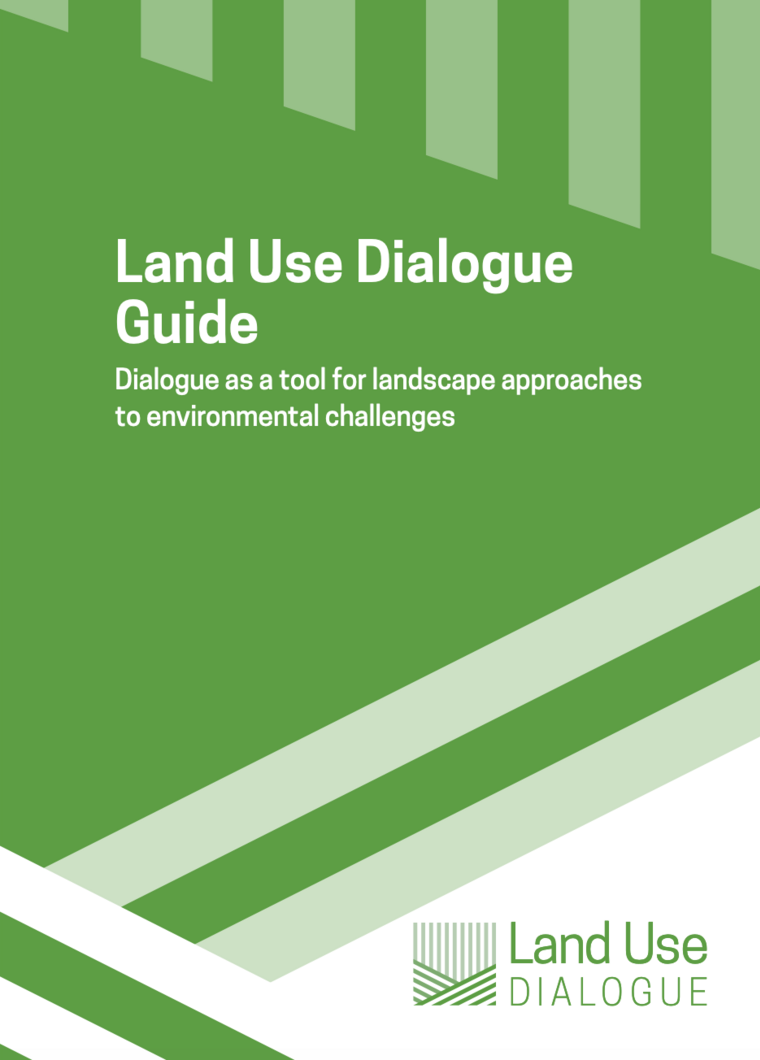Publications
The Forests Dialogue produces and publishes a variety of documents - maintained in a comprehensive library below. The majority of TFD publications are developed through TFD’s initiative process, including the following major publication types. In the lead-up to an initiative, a foundational Scoping Paper is produced to provide context for the scoping dialogue. Background Reports that provide stakeholders with relevant location-specific content are created for each subsequent dialogue following the scoping dialogue. At the conclusion of a dialogue, the co-chairs, with help from the TFD secretariat, produce a Co-chairs’ Summary Report that captures the key perspectives, discussions, agreements, and next steps from the dialogue. At the conclusion of an initiative, the Advisory Group, co-chairs, select leaders, and the Secretariat synthesize the initiative’s conclusions into a TFD Review. Additionally, Country Reports that aggregate learnings from a number of country-specific dialogues are typically produced for initiatives that involve numerous country-level dialogues, including TFD’s REDD+ dialogues. TFD also facilitates the production of guides and policy recommendations including a guide to the TFD process, the Land Use Dialogue methodology. These are geared towards practitioners or policy makers and contain actionable steps that stakeholders can take to enact change based on learnings gathered through the TFD process.
Navigate TFD’s extensive publication database using the search function below, or visit specific dialogue or initiative pages to see their associated publications.
This paper aims to provide a summary review of the evidence on commercial forestry’s ability to reduce poverty. It also tries to identify the key risks associated with greater participation of poor groups in commercial forestry and to identify factors, both internal and external to the forest sector, proven to enable commercial forestry to be pro-poor.
Thirty-five participants from twelve environmental organizations and nine companies from the forestry sector attended the second gathering of THE FORESTS DIALOGUE FOR THE ATLANTIC FOREST. About half of the individuals were also present at the first meeting which convened in October 2005.
The Forests Dialogue (TFD) will convene a dialogue with associated site visits in
Southern Guangxi Province, China in April 2006 to discuss and explore the issue of
intensively managed planted forests (IMPFs). This will be the first of a series of
dialogues and field visits by this working group. This group of experts has come
From 3 April to 6 April, The Forests Dialogue (TFD) convened 34 international leaders from the forest products industry, NGO community, academia and government in Zhanjiang (Guangdong Province) and Beihai (Guangxi Province), China for site visits and dialogue on the future of intensively managed planted forests (IMPFs).
Two main outcomes for poor households seem to be possible from the use of forest resources: poverty avoidance or mitigation – in which forest resources serve as subsistence ‘safety nets’ (to fall back on in lean times or when crops fail) or low income ‘gap fillers’ (to make a little cash from a few products managed or cultivated as a side-line); and poverty reduction – in which forest resources
During the period October 19 to 21, 2005, representatives of thirteen environmental organizations and five companies from the pulp & paper sector got together in Teresópolis, situated in the mountains behind Rio de Janeiro, to participate in the 1st Forest Dialogue for the Atlantic Forest.
From October 9 through October 11, 2003, thirty representatives from environmental groups, the forest products industry, landowners and academia met in Santa Cruz da Cabrália, Brazil, to discuss issues related to forestry and biodiversity conservation.
The Forests Dialogue (TFD) convened 22 international leaders from the forest products industry, NGOs and civil society, and forest owners at the Headquarters of the World Conservation Union -IUCN for a scoping dialogue to discuss the environmental, social, and economic factors critical to the management of intensively managed planted forests (plantations).
Plantation forests - even-aged stands of a single tree species established primarily for wood production - are one of the defining features and, against many criteria, one of the successes of forestry in the past century. Plantation forest extent increased from negligible to c. 190 M ha; they currently contribute c.
From March 7-10, 2005, more than 120 leaders from business, civil society,
government and academia met in Hong Kong to explore collaborative
strategies for combating illegal logging in Asia and throughout the world.
This meeting was convened by The Forests Dialogue (TFD), an international
organization which provides a forum for multi-stakeholder dialogues on




